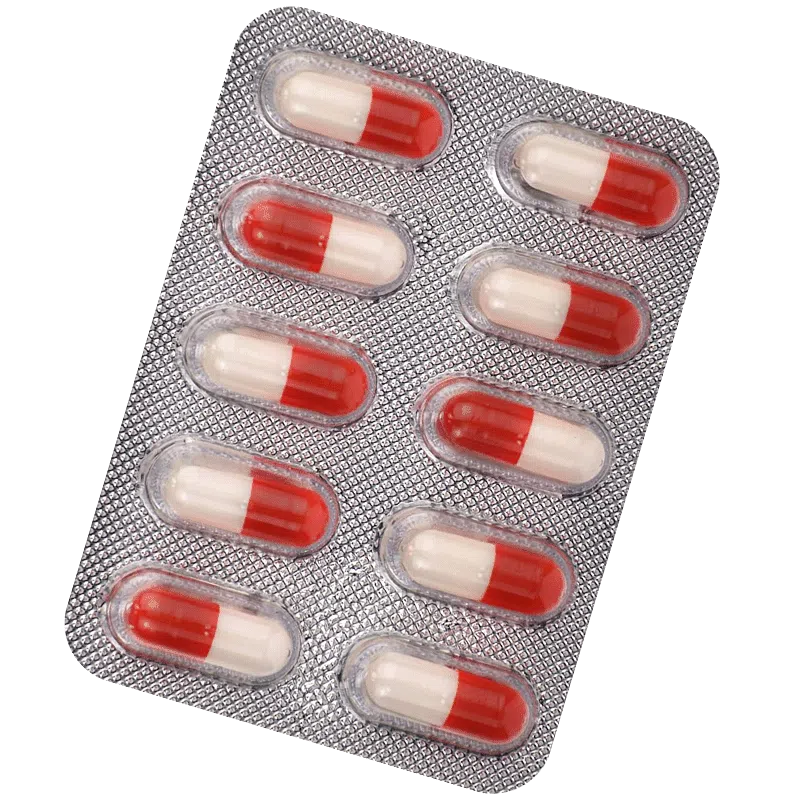- 15mg
- 30mg
- 28 Capsule £22.95
- 56 Capsule £34.95 Save £10.95
- 84 Capsule £45.95 Save £22.90
- Prices include:Express shipping
24 hour shipping by secure courier.
- Consultation + Access to our clinicians
Ask our experts anything you like, any time you want.
- Total
£22.95Save £0.00 each order
Product info
Lansoprazole is a capsule GORD treatment that reduces acid production.
- It can relieve symptoms such as acid reflux and bloating.
- It’s the generic version of Zoton FasTab and is available in two strengths.
- 15mg
- 30mg
- 28 Capsule £22.95
- 56 Capsule £34.95 Save £10.95
- 84 Capsule £45.95 Save £22.90
- Prices include:Express shipping
24 hour shipping by secure courier.
- Consultation + Access to our clinicians
Ask our experts anything you like, any time you want.
- Total
£22.95Save £0.00 each order
What is Lansoprazole?
Lansoprazole is a treatment for acid reflux and GORD. Acid reflux is when acid from the stomach travels into your food pipe and throat. It causes a burning sensation that we know as heartburn. Other symptoms can include bloating and bad breath. Lansoprazole treats acid reflux by stopping the cells in the lining of your stomach from producing too much acid.
Persistent and recurring acid reflux is called GORD (Gastro-oesophageal reflux disease).
Lansoprazole is a generic version of other branded treatments, such as Zoton FasTab. It’s available either as a capsule that’s taken with water, or as a tablet that melts in the mouth – and doesn’t need to be taken with water.
How does Lansoprazole work?
Acid reflux happens when acid in the stomach passes through the ring of muscle that holds the bottom of the oesophagus closed, and then enters the food pipe and throat.
Your stomach uses acid to break down the food you eat so that your body can digest it. It’s produced by proton pumps in the lining of your stomach wall. Sometimes, though, they produce too much and it goes up into your food pipe.
Lansoprazole prevents the proton pumps from producing too much acid. As a result there isn’t excess acid to travel to the food pipe and cause heartburn and the other symptoms associated with acid reflux and GORD.
What doses of Lansoprazole are there?
Lansoprazole comes in two doses: 15mg and 30mg. It comes in the form of a capsule that’s swallowed with water, and also as a dissolvable tablet that melts on the tongue and doesn’t need to be taken with water.
For acid reflux, treatment usually involves taking one tablet or capsule daily for four weeks.

How we source info.
When we present you with stats, data, opinion or a consensus, we’ll tell you where this came from. And we’ll only present data as clinically reliable if it’s come from a reputable source, such as a state or government-funded health body, a peer-reviewed medical journal, or a recognised analytics or data body. Read more in our editorial policy.
How to take Lansoprazole
How you take lansoprazole depends on the version you are taking, and it’s really important that you read the leaflet that comes with it beforehand. If you‘re unsure about anything to do with taking the medicine, let us know.
Instructions: Lansoprazole gastro-resistant capsules
Our clinician will usually tell you to:
- Swallow the capsule whole with a glass of water.
- Take capsules at the same time everyday.
- Take lansoprazole tablets in the morning.
- Take capsules half an hour before food.
Instructions: Lansoprazole orodispersible tablets
Our clinician will usually tell you to:
- Take the tablet half an hour before food.
- Take it at the same time of day.
- Take the tablet in the morning.
- Put the tablet into your mouth and allow it to dissolve before swallowing.
- Use a syringe if you struggle to take the tablet.
How long does it take Lansoprazole to work?
Lansoprazole starts to work straight away and reduces the amount of acid produced in your stomach by 70-80%, and this increases to over 80% after you’ve been taking it for a week [1] It takes just under two hours for lansoprazole to reach the bloodstream, but can take 50% longer if you take it with food.
What should I do if I make a mistake when taking Lansoprazole?
If you forget to take a dose of Lansoprazole you should take your medication as soon as you remember. If it’s time for your next dose, skip the missed dose and carry on as usual. Never take a double dose of Lansoprazole. If you take too much Lansoprazole seek medical advice immediately.
Treated trusted sources:
- Kahrilas, P.J., Boeckxstaens, G. and Smout, A.J.P.M. (2013). Management of the patient with incomplete response to PPI therapy. Best Practice & Research Clinical Gastroenterology, [online] 27(3), pp.401–414.

How we source info.
When we present you with stats, data, opinion or a consensus, we’ll tell you where this came from. And we’ll only present data as clinically reliable if it’s come from a reputable source, such as a state or government-funded health body, a peer-reviewed medical journal, or a recognised analytics or data body. Read more in our editorial policy.
FAQ: Lansoprazole
Have something specific you want to know? Search our info below, or ask our experts a question if you can’t find what you’re looking for.
How is Lansoprazole different to other treatments for GORD?
Is Lansoprazole similar to any other treatments?
Which dose of Lansoprazole should I use?
How effective is Lansoprazole?
Do I need a prescription for Lansoprazole?
Treated trusted sources:
- Kovacs, T.O., Freston, J.W., Haber, M.M., Hunt, B., Atkinson, S. and Peura, D.A. (2009). Long-Term Efficacy of Lansoprazole in Preventing Relapse of Erosive Reflux Esophagitis. Digestive Diseases and Sciences, 54(8), pp.1693–1701.
Healthcare on your terms
You know your needs better than anyone.
So we offer what’s safe, but you choose the treatment that suits you best.
Consult on your own time
Answer a few questions online and tell us about yourself. Get ongoing access to our clinicians whenever you need them.
Treatments to fit your life
Choose your treatment and how often you have it delivered.
Your health, continued
We know things change. It’s the nature of life. We’ll check in regularly to make sure your treatment is still right for you.
Control at your fingertips
Pause. Change. Skip. Start again. Any time you like.
Get to know our clinical team
They review our info and prescribe your treatments.
Dr Daniel Atkinson
GP Clinical Lead
Registered with GMC (No. 4624794)
Meet DanielMr Craig Marsh
Pharmacist Prescriber
Registered with GPhC (No. 2070724)
Meet CraigMs Sanjeda Chowdhury
Superintendent Pharmacist
Registered with GPhC (No. 2202465)
Meet SanjedaSimilar but different
GORD: Here are our other options.

Generic version of Ventra. Tablets that soothe symptoms of acid reflux.
- 20mg
- 40mg
- 28 Tablets £32.95
- 56 Tablets £49.95 Save £15.95
- 84 Tablets £66.95 Save £31.90

Branded treatment for GORD that's available as either a capsule or pellets.
- 20mg
- 40mg
- 28 Capsules £52.95
- 56 Capsules £91.95 Save £13.95
- 84 Capsules £130.95 Save £27.90

Like Esomeprazole, but branded. Tablets or granules available in a 10mg, 20mg or 40mg dose.
- 20 mg
- 28 Tablets £56.95
- 56 Tablets £97.95 Save £15.95
- 84 Tablets £136.95 Save £33.90

Generic version of Losec. Can treat GORD, heartburn and stomach ulcers too.
- 20mg
- 28 Capsules £22.95
- 56 Capsules £34.95 Save £10.95
- 84 Capsules £45.95 Save £22.90

Gastro-resistant tablet that stops stomach acid from entering the throat.
- 20mg
- 40mg
- 28 Tablets £34.95
- 56 Tablets £56.95 Save £12.95
- 84 Tablets £78.95 Save £25.90

Daily GORD relief tablets that come in two doses. Can also treat stomach ulcers.
- 10mg
- 20mg
- 28 Tablets £34.95
- 56 Tablets £51.95 Save £17.95
- 84 Tablets £67.95 Save £36.90

Daily tablet to relieve symptoms of heartburn and provide long-term treatment for GORD and stomach ulcers.
- 10mg
- 20mg
- 28 Tablets £24.95
- 56 Tablets £35.95 Save £13.95
- 84 Tablets £47.95 Save £26.90

One a day oro-dispersible tablet for managing GORD. Available in two doses.
- 15mg
- 30mg
- 28 Tablets £28.95
- 56 Tablets £39.95 Save £17.95
- 84 Tablets £51.95 Save £34.90
Here’s what you had to say
- Product reviews
- Service reviews
Corrected a delivery problem immediately and easily
Very good always on time with a confidential assesment. I am on last course now and have had real progress. Would consult with again in future. Would reccomend.
Great service, professional staff, with the best advice
I m so nice suprise with this service, all very profesional and quick. I was trying get help from Gp about HRT but only what I get was link to NHS website ( which i alredy read it ) and trying put me on antidepressant tablets ( what make me feel worse) I m nearly a month now on hormon tablets and it's such a massive difference. Thank you so much for saving my life ❤️
good information. good quick response to a query. excellent service.
very good to deal with and very fast delivery
Read more about Lansoprazole
Give us the inbox treatment
We're making healthcare more about you. Sign up to our newsletter for personalised health articles that make a difference.
